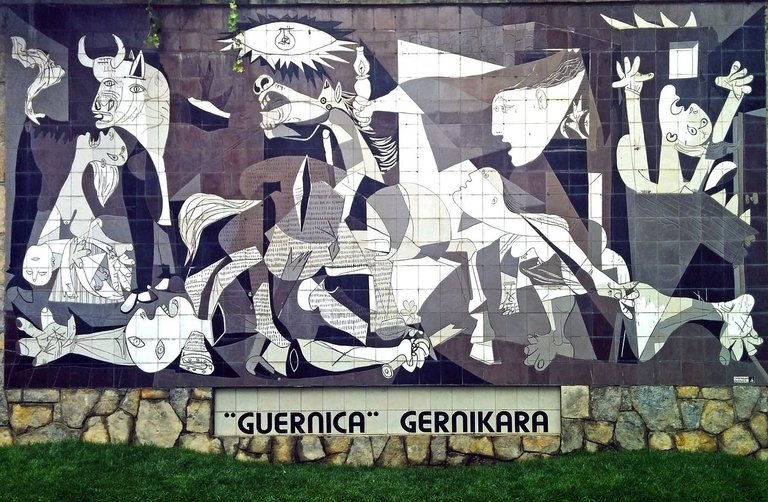
“Uwe, please, stop. You need to come upstairs and have your supper.”
“Just a little more, Muttie. It’s nearly deep enough to begin putting the bricks in.”
“Please! You need to come now. Schnitzel does not wait well.”
Uwe rested on his pick. The corner was probably good enough to start laying in a base. Lifting everything via a ladder and through the small hatch was a nuisance, but once there was a solid base in the corner stairs would be easier to build. It would be worth it.
He went up for supper.
‘Herr Friedmann, why do you feel the need to build a bomb shelter in your basement?'
‘Frau Friedmann, we have Uwe with us. He’s been hurt.”
‘You have my son! Wait, has anyone seen you?’
‘No.’
She looked nervously in the direction of the village.
‘Quick, bring him in.”
As they lifted him out of the van Uwe whimpered.
‘Oh! My son.’
‘Hallo Muttie. I told you I’d come back. Don’t worry about me. This is worse than it loo— uuhhh.’ His knuckles turned white as he gripped the side of the stretcher.
His two comrades hurried him into the house, his mother followed. Soon he was settled into bed, and asleep. His comrades wanted to leave immediately, but the offer of a hot meal after two weeks of scavenged food was too good to resist.
‘Tell me what happened to him.’
‘We were fighting for Barcelona. Then, all foreign fighters were ordered from the front line. We were on our way to barracks when a shell hit our truck.’
‘My poor boy, my poor Uwe.’
‘Frau Friedmann, we brought Uwe home. Many of our comrades were not so lucky.’
‘Of course. You poor brave boys. How will you—“
‘Please don’t ask. What you don’t know you can’t tell. We only bought Uwe back because he said you had a place to escape to. He refused to come without you.’
‘Come wh…’ she raised her hand before they said anything. ‘Yes, we have. My husband’s comrades, we have…’
She shrugged.
They left, escaping to the Czech border, and from there to the Soviet Union.
‘We know you were part of the traitorous Thälmann Battalion, scurrying out of Spain before the inevitable defeat of your communist scum comrades.’
‘Where are we today?’
‘Guernica.’
‘Why?’
‘It’s market day. Don’t you want some fresh food instead of the crap we’ve been eating for the last three weeks?’
‘So long as we’re back at the front before we’re due on watch.’
‘Stop worrying Uwe, it’s only thirty miles. We’ll load up with whatever veg is left, and grab some eggs, see if some farmer still has a pig to sell. We’ll be an hour, and our comrades will treat us like kings.’
‘Recidivist’
They laughed together. Market day was busy, and the truck crawled through the streets. The Basque town was anxious to show support for their Republican soldiers. Bottles of txakoli and cider, punnets of cherries, a side of ham, various vegetables – all were thrust through the windows with cheers and smiles.
‘At this rate, we won’t need to spend anything,’ Uwe said.
‘What is that that?’
In the afternoon sky planes were visible.
‘Oh, the bastards. Not again. Not after Ochandiano and Durango.’
He sounded on the horn. Both men leaned out of their windows, pointing, waving their arms and shouting ‘rápidemente’ in poor Spanish accents.
The bombs fell on the innocent.
‘Your father was a communist. Your hure mother is a communist. Stand by the hole you filthy communist. No real German wants to handle your corpse.’
end
so, this one needs some explanation. The Spanish Civil War was a prelude to WW2 and the International Brigade, while majority French, had communists from all over Europe in its ranks. These included Germans. The terror bombing of Guernica in April '37 was preceded by others, two mentioned in the story. Here, the story works forwards and backwards in direction. The main story is Uwe's and starts with his return home, ending with him being at Guernica, and ignoring the months in between. The interludes move forward and are by the Gestapo.
Pablo Picasso painted his famous painting in the months after the atrocity and was displayed from July '37. Proceeds from it's world tour went to the Spanish War Relief. Picasso blocked the painting going to Spain until it was no longer a dictatorship. It finally came to the country in 1981. That was eight years after Picasso's death, six years after Franco's, and three years after the country became a democratic constitutional monarchy.
the story is, I hope, not a comfortable read.
*text by stuartcturnbull, photo by Almudena_Sanz_Tabernero via pixabay